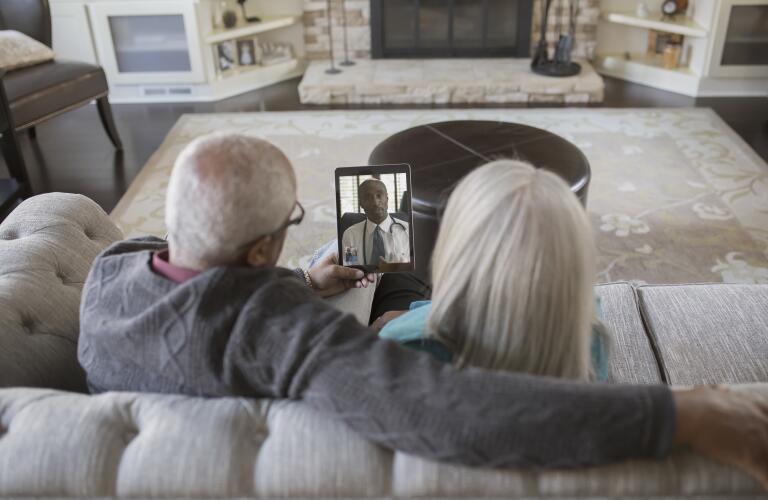
Many healthcare providers are using telehealth to care for their patients outside the doctor’s office. Telehealth uses technologies like computers, smartphones, tablets, and the internet to connect you with your doctor virtually, over phone call, video chat, and even text message. These tools can be used for a variety of purposes, such as putting you in touch with specialists, helping you to manage your medications, or assessing you for other health problems.
Telehealth appointments for chronic lymphocytic leukemia (CLL) can help patients receive quality care from the comfort of their homes, cutting down on travel time and keeping people safe from infection–an important benefit, since CLL makes infections more likely. If you have CLL and are interested in using telehealth to keep your treatment on track, your doctor may agree to use this option to help you stay as healthy as possible.
Why try telehealth for CLL treatment?
Even though telehealth is growing in popularity, you may still wonder whether it’s worth exploring this method of patient care. If you’ve never experienced a virtual doctor visit, you may think you won’t get the same level of attention and care as you would during an in-person consultation with your doctor. But telehealth actually offers many benefits, especially for people diagnosed with chronic lymphocytic leukemia.
- It’s more convenient. Since there’s no need to leave your home, you may find telehealth appointments for CLL actually cut down on the time you spend managing your condition. Plus, there’s no need to travel to your doctor’s office—it’s possible to conduct your appointment from almost any location.
- It gives you greater access. Your doctor may recommend you see a specialist for CLL. But what if one isn’t available near you? Telehealth gives many patients increased access to online oncologists who are more knowledgeable about CLL and its treatment. Also, you could benefit from almost immediate access to your doctor around the clock via email or video conferencing.
- It may cost less. Many insurance companies and governmental programs like Medicare now cover telehealth appointments just as they would in-person appointments, and in some cases, telehealth visits are less expensive. It’s worth checking with your insurer to make sure you understand your coverage.
- It helps protect you. CLL places you at higher risk for infections, since the condition affects white blood cells, which are crucial for identifying and overcoming harmful germs. Virtual doctor visits prevent you from having to go into a medical office where you could be exposed to a variety of viruses and bacteria.
- It’s just as effective. Recent studies on patient satisfaction show many patients actually prefer using telehealth to connect with their doctors. These results are helping drive demand for telehealth appointments for chronic lymphocytic leukemia.
What happens during a telehealth appointment?
Online oncologists are licensed physicians; your own doctor may offer telehealth for your CLL treatment. And just like an in-person appointment, virtual doctor visits can be used to accomplish several goals for treatment, such as:
- Consulting with your doctor. Most types of telehealth technologies allow for live video conferencing. You can talk with your doctor in real time, receiving the advice and education you need to make decisions about your treatment.
- Managing your prescriptions. Doctors can prescribe new medications, change dosages, and refill prescriptions using telehealth.
- Reviewing test results. Telehealth gives you immediate access to the results of medical tests, and you can review these results with your doctor when you speak with him or her.
- Collecting information about your health. In some cases, doctors use telehealth to collect important information about your health and the progression of CLL. You may need to use a private patient portal online to email your doctor or enter information in a spreadsheet or other form.
Even if you’ve never tried a telehealth appointment for chronic lymphocytic leukemia, you may be surprised by the level of service and convenience this type of treatment approach offers. Your doctor may suggest telehealth to help protect you from possible infection, especially during this period of social distancing and isolation. If you’re interested in telehealth, ask your doctor if it’s the right option for you.












